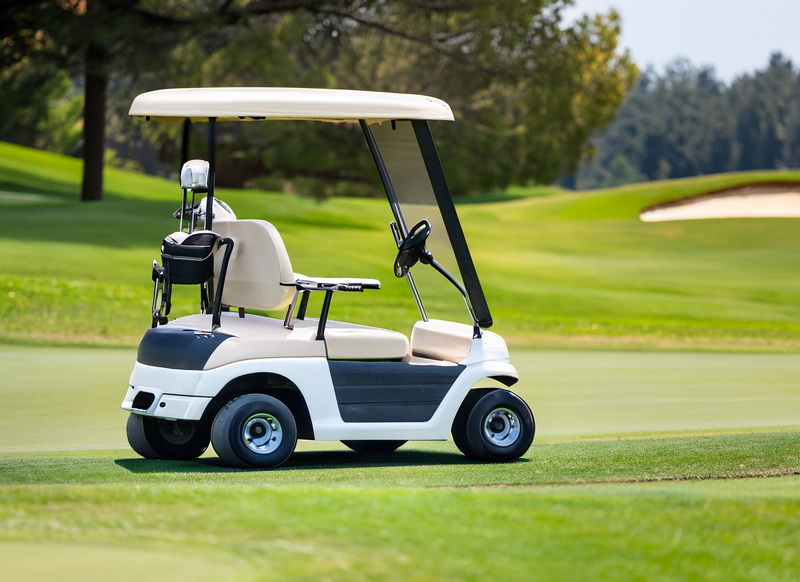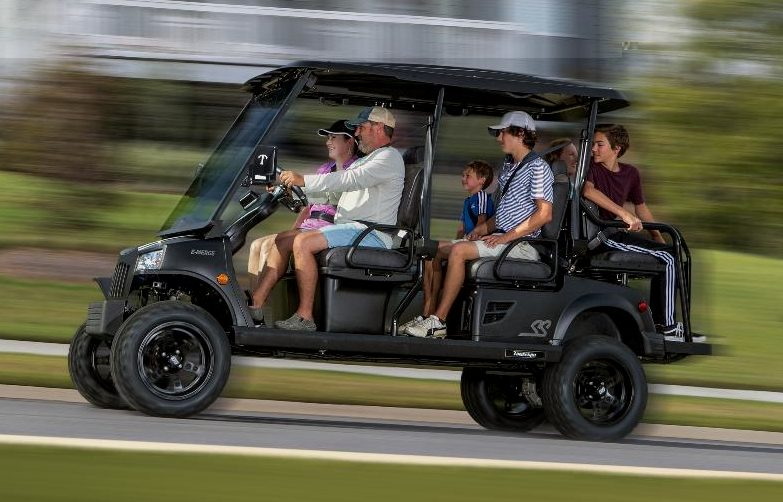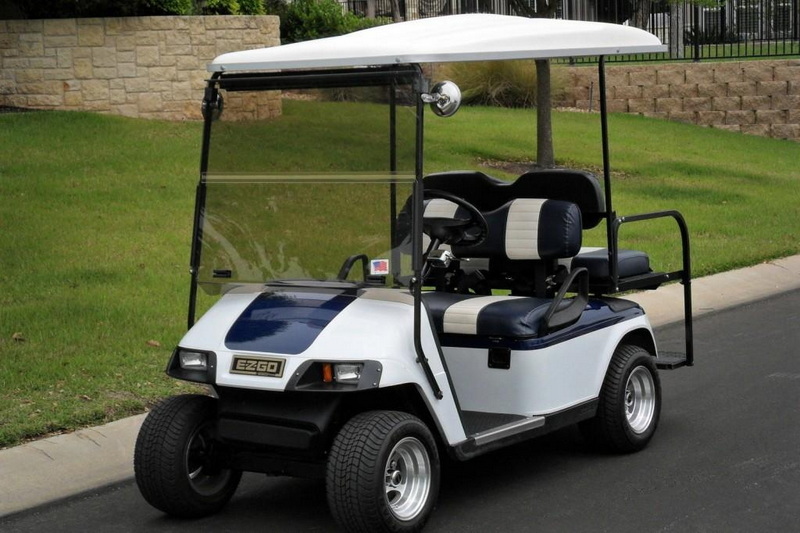Content Menu
● Understanding Electric Golf Cart Speed
>> Types of Electric Golf Carts
>> Factors Affecting Speed
● Speed Modifications
>> Upgrading the Motor
>> Battery Upgrades
>> Gear Ratio Adjustments
● Comparing Electric and Gas-Powered Golf Carts
>> Performance
>> Environmental Impact
● The Future of Electric Golf Carts
>> The Role of Technology
>> Customization Options
● Conclusion
● Frequently Asked Questions
>> 1. What is the average speed of an electric golf cart?
>> 2. Can I modify my electric golf cart for more speed?
>> 3. How do electric golf carts compare to gas-powered carts in terms of speed?
>> 4. Are electric golf carts environmentally friendly?
>> 5. What factors can affect the speed of an electric golf cart?
Electric golf carts have become increasingly popular on golf courses and in residential communities. They offer a convenient and eco-friendly way to navigate the greens and get around neighborhoods. But one question that often arises is, "How fast is an electric golf cart?" In this article, we will explore the speed capabilities of electric golf carts, factors that influence their speed, and how they compare to traditional gas-powered carts.

Understanding Electric Golf Cart Speed
Electric golf carts typically have a top speed ranging from 12 to 20 miles per hour (mph). However, some modified carts can reach speeds of up to 25 mph or more. The speed of an electric golf cart is influenced by several factors, including the type of motor, battery capacity, weight, and terrain.
Types of Electric Golf Carts
There are two main types of electric golf carts: standard and high-performance. Standard electric carts are designed for leisurely rides around the golf course or neighborhood, while high-performance carts are built for speed and agility.
Factors Affecting Speed
1. Motor Power: The power of the electric motor is a significant factor in determining speed. Most standard golf carts have a 36-volt or 48-volt motor, with higher voltage motors generally providing more power and speed.
2. Battery Capacity: The type and condition of the batteries also play a crucial role. Lithium-ion batteries tend to provide better performance and longer life compared to traditional lead-acid batteries.
3. Weight: The overall weight of the cart, including passengers and cargo, can affect speed. Lighter carts can accelerate faster and maintain higher speeds.
4. Terrain: The type of terrain can significantly impact speed. Carts will generally go slower on steep hills compared to flat surfaces.
5. Tire Size and Type: The size and type of tires can also influence speed. Larger tires can provide better traction and stability, but they may also slow down acceleration.
Speed Modifications
For those looking to increase the speed of their electric golf cart, several modifications can be made. These include upgrading the motor, installing a higher voltage battery, and adjusting the gear ratio. However, it is essential to consider the legal implications of modifying a golf cart, especially if it will be used on public roads.
Upgrading the Motor
Upgrading to a more powerful motor can significantly increase speed. Many aftermarket motors are available that can provide higher torque and speed capabilities. When selecting a motor, it's important to consider the compatibility with your existing cart and the type of performance you desire.
Battery Upgrades
Switching to lithium-ion batteries can enhance performance. These batteries are lighter and can provide more power, allowing for faster speeds and longer ranges. Additionally, lithium-ion batteries have a longer lifespan and require less maintenance compared to traditional lead-acid batteries.
Gear Ratio Adjustments
Adjusting the gear ratio can also help increase speed. A higher gear ratio can allow the cart to reach higher speeds, but it may reduce acceleration. It's crucial to find a balance that suits your driving style and the terrain you'll be navigating.

Comparing Electric and Gas-Powered Golf Carts
When comparing electric golf carts to gas-powered ones, speed is just one of many factors to consider. Gas-powered carts typically have a higher top speed, often reaching 20 to 25 mph. However, electric carts have several advantages, including lower operating costs, quieter operation, and reduced environmental impact.
Performance
While gas carts may have a slight edge in speed, electric carts are often more efficient and require less maintenance. They also provide a smoother ride, making them a popular choice for many golfers. The quiet operation of electric carts allows for a more peaceful golfing experience, which many players appreciate.
Environmental Impact
Electric golf carts produce zero emissions, making them an environmentally friendly option. This is particularly important for golf courses that aim to maintain a sustainable and eco-friendly image. Many courses are now opting for electric carts to reduce their carbon footprint and promote a greener approach to golfing.
The Future of Electric Golf Carts
As technology continues to advance, the speed and performance of electric golf carts are expected to improve. Innovations in battery technology, motor efficiency, and lightweight materials will likely lead to faster and more efficient carts in the future. Manufacturers are also exploring the integration of smart technology, allowing for features such as GPS navigation, speed monitoring, and even remote control capabilities.
The Role of Technology
The integration of technology into electric golf carts is transforming the way they are used. Features like regenerative braking, which recovers energy during braking to recharge the battery, are becoming more common. Additionally, advancements in battery management systems are helping to optimize performance and extend battery life.
Customization Options
Many manufacturers now offer customization options for electric golf carts, allowing owners to personalize their carts to suit their preferences. From color choices to upgraded seating and storage solutions, the ability to customize enhances the overall experience of owning an electric golf cart.
Conclusion
In summary, electric golf carts typically have a top speed of 12 to 20 mph, with some modified versions reaching higher speeds. Factors such as motor power, battery capacity, weight, terrain, and tire size all play a role in determining speed. While gas-powered carts may offer higher top speeds, electric carts provide numerous benefits, including lower operating costs and a reduced environmental impact. As technology advances, we can expect to see even faster and more efficient electric golf carts in the future.

Frequently Asked Questions
1. What is the average speed of an electric golf cart?
The average speed of an electric golf cart is typically between 12 to 20 mph, depending on various factors such as motor power and battery capacity.
2. Can I modify my electric golf cart for more speed?
Yes, you can modify your electric golf cart by upgrading the motor, installing a higher voltage battery, or adjusting the gear ratio to increase speed.
3. How do electric golf carts compare to gas-powered carts in terms of speed?
Gas-powered golf carts generally have a higher top speed, often reaching 20 to 25 mph, while electric carts typically range from 12 to 20 mph.
4. Are electric golf carts environmentally friendly?
Yes, electric golf carts produce zero emissions, making them a more environmentally friendly option compared to gas-powered carts.
5. What factors can affect the speed of an electric golf cart?
Factors that can affect the speed of an electric golf cart include motor power, battery capacity, weight, terrain, and tire size.




















































